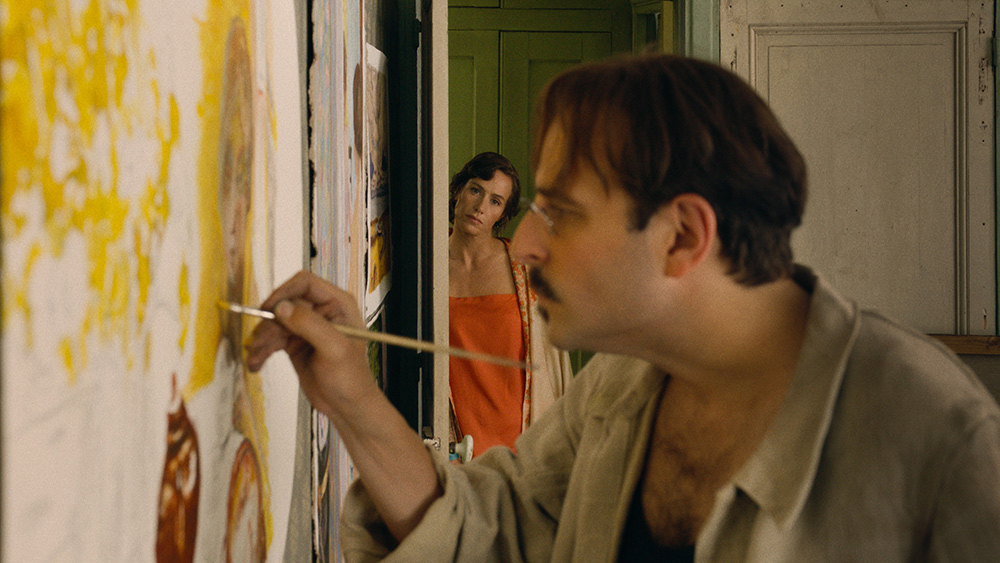!["Pierre and Marthe Bonnard" Vincent Macaigne devotes himself to the director's vision [Actor's Interview Vol.43]](https://cinemore.jp/images/29abad0881a17781a1f9f26d76c5d7532eb94985dc532c2bb1e5477290df21c2.jpg)
©2023-Les Films du Kiosque-France 3 Cinéma-Umedia-Volapuk
"Pierre and Marthe Bonnard" Vincent Macaigne devotes himself to the director's vision [Actor's Interview Vol.43]
Vincent Macaigne is already well known among fans of French cinema. He has played the role of a lovable loser in films such as Guillaume Braque's The Lost (2009) , A Woman Without a Will (2011), and A Kind Person (2013), and Sébastien Bebédere's Ménilmontant (2013). He has also become an indispensable presence in films by directors with a strong auteur influence, such as Olivier Assayas's Paris in Winter (2018) and Cedric Kahn's Happy Birthday (2019).
He was asked by the master director Martin Provost, known for " Seraphine " (2008), to play Pierre Bonnard, one of the leading Nabi painters of the 20th century, in his new film "Pierre and Marthe Bonnard." For the role, he lost weight and studied painting, and with a slightly different atmosphere from his previous roles, he became a bohemian painter with many love affairs.
We asked him about his experience working on this film and about directors of his generation in French cinema.
Summary of "Painter Bonnard: Pierre and Marthe"
In 1893, Pierre and Marthe meet in Paris as a painter and a model. Pierre, who comes from a bourgeois background, is strongly attracted to the mysterious and unconventional Marthe, and the two begin living together. Pierre finds a home in the countryside and withdraws from the social world, devoting himself to painting in a semi-secluded life, except for a few friends such as Claude Monet. Pierre's explicit paintings of Marthe as a model are well-received, and Pierre has a very successful exhibition. In the summer of 1914, when World War I began, Marthe becomes increasingly anxious about Pierre, who travels to Paris every week for work, and towards the end of the war, she bumps into Renée, an art school student who is modeling for Pierre, at his Paris studio. For some reason, Marthe takes a liking to Renée, and the relationship between the three becomes complicated...
Index
Dedicate yourself to the director's vision
Q: How did you meet director Martin Provost?
Macaigne: Actually, I was approached for another project before this one, but it didn't come to fruition. That's why I'm so happy to be able to play Pierre Bonnard this time. My main job is directing, so when I act, I do it with the feeling that I'm dedicating myself to the director's vision. This time, I lost weight according to the director's wishes, took painting lessons, and spent 3-4 months preparing for the role. Unfortunately, after the movie was over, I went back to my usual weight (laughs).

"Painters: Pierre and Marthe Bonnard" ©2023-Les Films du Kiosque-France 3 Cinéma-Umedia-Volapuk
Q: Your mother is also a painter. Did that help you?
Macaigne: No, I never learned anything from my mother, and although I watched her paint, I didn't go to museums with her often. Rather, I studied Bonnard's painting style and behavior, and made an effort to learn them. However, Martin (Provost)'s film is not about Bonnard as the main character, but rather about his relationship with Marthe, and I think it is a story that has different hooks for each viewer. Martin is a great storyteller and is good at drawing the audience's interest. Also, there wasn't much material about Bonnard's personality, so I rather created an image of Bonnard for this film together with the director.
Q: I heard that when you were a child, your mother, who loved art, gave you a poster of a Bonnard exhibition, which you hung next to your bed and looked at every day, which is how you became a fan of Bonnard. You also lived for many years in an area close to the Roulottes in Vernon, where Bonnard lived, and the filming location for this movie was also in the same area.
Macaigne: That's right. That's why the director has such deep feelings about the film. Films often tell the story of the protagonist's life, but I feel that it often overlaps with the story of the creator, that is, the director. This film tells the story of Bonnard's life, but I had the impression that I was immersed in Martin's world. Therefore, although this is a story that spans the 19th and 20th centuries, it is also the scenery that Martin saw, and in a sense, I think that the film captures the world that still exists today.

